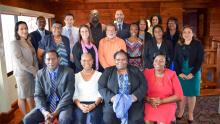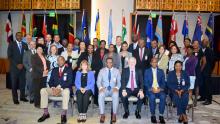News list
Search results
Showing 101 to 120 of 219 results in 11 pages.
30 August 2017 | Press Release
12 July 2017 | Press Release
5 July 2017 | News

31 May 2017 | News
29 May 2017 | Press Release
19 May 2017 | Speech
9 May 2017 | Infographic
9 May 2017 | Infographic
9 May 2017 | Infographic
3 May 2017 | News
26 April 2017 | News
17 de April de 2017 | Fact sheet
12 April 2017 | News
